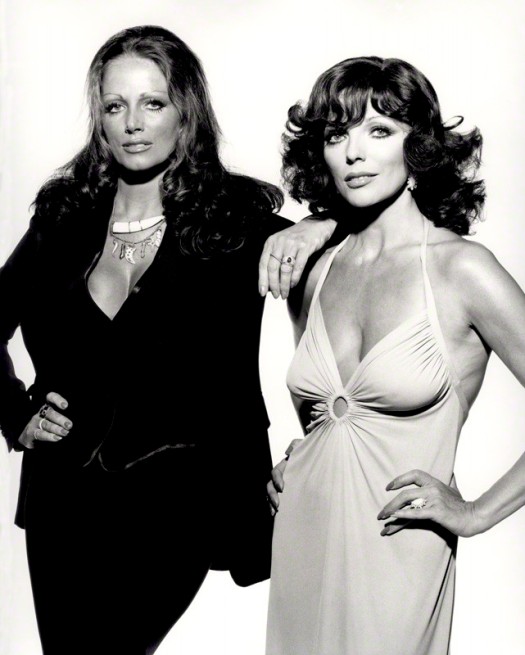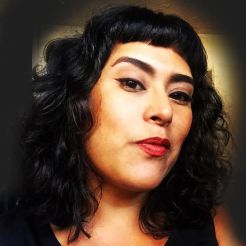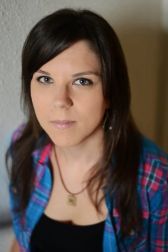by Tisha Marie Reichle

When setting your reading and writing goals for 2016, consider the work being done by other women writers and editors – people like you! Think about subscribing to one or more of the journals listed below. Make a conscious effort to read print and online journals edited/curated by women writers. Submit your work regularly to the journals and magazines that address themes you are writing about. As we move towards being more responsible literary citizens in the upcoming year, keep our sister writers in mind. (Information below is edited from each journal/magazine website information.)
If there are publications that have not been included on this list, please add a brief description and a link in the comments below so others can learn about it and we can update our information.
13th Moon: A Feminist Literary Magazine
Founded in 1973 in the ferment of early second wave feminism, as a home for women writers and their readers. Because the surrounding culture has tended to erase women writers from history, their work has needed rediscovery, preservation and its own dedicated space each generation.
Adanna Literary Journal: a journal for women, about women
A name of Nigerian origin, pronounced a-DAN-a, is defined as “her father’s daughter.” Women over the centuries have been defined by men in politics, through marriage, and, most importantly, by the men who fathered them. Today women are still bound by complex roles in society, often needing to wear more than one hat or sacrifice one role so another may flourish. Submissions must reflect women’s issues or topics, celebrate womanhood, and shout out in passion.
Adrienne
This is an intermittently published literary journal featuring poetry by self-identified queer women. Work need not be lesbian themed. The definition of “queer women poets” is also a flexible term; they welcome work by women who identify as queer, lesbian, dyke, bisexual, and trans* as well. Each issue is built around a small number of poets and showcase the variety within the queer poetry community. They are not looking for any one style or form; each issue will represent multiple poetic forms, including traditional poetry, prose poetry, spoken word poetry translated to the page, and experimental poetry.
Bitch: Feminist Response to Pop Culture
A nonprofit, independent, feminist media organization dedicated to providing and encouraging an engaged, thoughtful feminist response to mainstream media and popular culture seeks to be a fresh, revitalizing voice in contemporary feminism. They are uniquely situated to draw in young readers who are at a critical moment in their lives—a moment when they are discovering feminism and activism, finding answers to who they are, and questioning the definitions of gender, sexuality, power and agency prescribed by the mainstream media.
Blackberry
A magazine devoted to sharing the literary voices of black women. This online journal is run by women who strongly believe in its mission to showcase a new generation of writers as well as illuminate voices from the past that may have been ignored.
Bluestockings Magazine
A feminist multimedia publication with a gender-aware perspective and an anti-oppression framework. Their feminisms are rooted in opposition to all forms of oppression with an understanding that feminism links together the political, the structural, and the personal. They aim to center voices from marginalized and historically resilient communities across intersections of color, race, ethnicity, religion, nationality, immigration status, disability, gender identity, sexuality, class, substance use, status of incarceration, experience of violence and trauma, and other identities not listed here. They accept work from every genre and medium, and highly encourage work from people of color with intersectional identities. They also welcome work from first-time contributors, who can expect a hands-on editing process from the team.
Bone Bouquet
A biannual online journal seeking to publish the best new writing by female poets, from artists both established and emerging. They aim to highlight the important work of female poets, who are often underrepresented in the writing community and popular media. Rather than personal politics, their criteria are excellence and vibrance. Rather than segregating the poetry of ‘women’s issues’ from ‘regular’ creative work, their goal is to provide an additional arena to make work more visible to readers, building their reputations as artists.
Calyx: A Journal of Art and Literature by Women
A forum for women’s creative work—including work by women of color, lesbian and queer women, young women, old women—CALYX Journal breaks new ground. Each issue is packed with new poetry, short stories, full-color artwork, photography, essays, and reviews.
damselfly press: A gathering of women’s voices
The name is derived from the tenacious damselfly, a unique and highly independent insect whose remarkable compound eyes allow her the advantage of examining many aspects of her environment. They value writing that soars beyond common perceptions and seek to promote exceptional writing by women. They welcome fiction, poetry, and nonfiction from female writers of all experiences. They are interested in work that is honest and explores human nature; there is truth even in fiction.
The Fem
It is a literary journal that publishes feminist, diverse, and inclusive creative works and interviews with writers, artists, and creators twice a week. They practice intersectional feminism, and seek to act as a safe space for both readers and writers from marginalized groups.
Feminist Formations
It is a forum where feminists from around the world articulate research, theory, activism, teaching, and learning, thereby showcasing new feminist formations. An interdisciplinary, peer-reviewed journal, they publish innovative work by scholars, activists, artists, poets, and practitioners in feminist, gender, and sexuality studies. A permanent section of the journal devoted to contemporary feminist poetry is designed to push at the bounds of academic knowledge production to make space for creative writers whose work can help us to see, learn, and experience from fresh angles.
Feminist Studies
They are committed to publishing an interdisciplinary body of feminist knowledge that sees intersections of gender with racial identity, sexual orientation, economic means, geographical location, and physical ability as the touchstone for our politics and our intellectual analysis. They welcome all forms of written creative expression, including but not limited to poetry and short fiction in all forms. They are interested in work that addresses questions of interest to their audience, particularly work that pushes past the boundaries of what has been done before. They look for creative work that is intellectually challenging and aesthetically adventurous, that is in complicated dialogue with feminist ideas and concepts, and that shifts readers into new perspectives on women/gender.
The Feminist Wire
It is a peer reviewed online feminist publication. They welcome essays, interviews, op-eds, stories, poetry, plays, and visual art that explicitly deploy a feminist lens, and define feminism very broadly. They are also committed to anti-racist and anti-imperialist approaches.
Hip Mama
This is the original alternative parenting magazine, covering subjects from weaning to home schooling with humor and political edge. It is a forum for single, urban and feminist mothers. And the December 2015 issue features WWS member Lisbeth Coiman!
Iris Magazine: for thinking young women
After more than 30 years of publication, they continue to celebrate and empower young women through provocative pieces. Their mission is not only to showcase women’s achievements at the University and within Charlottesville, in support of the women’s community and in conjunction with the Center’s mission to creating change, but to also underscore the relevance of women’s issues throughout the community to foster change and highlight accomplishments.
Lavender Review
Born on Gay Pride Day, June 27, 2010, it is an international, biannual (June & December) e-zine dedicated to poetry and art by, about, and for lesbians. This e-zine is free, and open to everyone.
Lilith Magazine
Independent, Jewish & frankly feminist since 1976, it charts Jewish women’s lives with exuberance, rigor, affection, subversion and style. Their work includes bold reporting and memoir, original fiction and poetry, and a lively take on tradition, celebrations and social change.
Literary Mama
Since 2003, they have featured writing about the many faces of motherhood, including poetry, fiction, columns, and creative non-fiction that may be too raw, too irreverent, too ironic, or too body-conscious for traditional or commercial motherhood publications. They honor the difficult and rewarding work women do as they move through motherhood by providing a smart, diverse venue to read, publish, and share mama-centric stories.
Lumen Magazine
It is a project for (and by!) women and nonbinary people. They are interested in poetry, fiction, personal essays, and interviews that examine how people move through the world, both as complex individuals and as members of larger communities. The conversations they are interested in are those that shed light on our stories—our struggles, our triumphs, and all the in-betweens.
Luna Luna Magazine
It is the dreamer’s lifestyle diary where readers can indulge their good and bad sides in the quiet conversations, the confessions, the uncomfortable, the indulgent and the beautiful. They aim to capture everything that makes our world so powerful: beauty, light, nuance, oddities, opulence, magic and desire. They consistently profile brave, unapologetic, feminist and creative thinkers from all walks of life. They focus heavily on the personal, intimate, literary, artistic and occult.
Minerva Rising
It is an independent literary journal celebrating the creativity and wisdom in every woman. They publish thought-provoking fiction, non-fiction, photography, poetry and essays by women writers and artists. It has grown out of a love of literature and the knowledge that when women come together, we flourish. Just as the Goddess Minerva represented creativity, wisdom, medicine, commerce, arts and education, the journal provides the opportunity for and the evidence of that bounty.
The Mom Egg Review: Literature & Art
An annual literary journal by and about mothers and motherhood. Celebrated writers and new talents explore the experience of motherhood from diverse perspectives and examine the nexus of motherhood with other identities, cultural and personal. Multi-ethnic and multi-generational, it tells important stories ignored or marginalized by other publications, and nurtures exciting literary talents.
MP
It is an online, peer-reviewed, international feminist journal. Their goals are to provide an intelligent forum for feminist discourse in cyberspace and provide space for a variety of voices on issues of gender and power. They believe that words can change the world!
Mslexia: for women who write
It tells you all you need to know about exploring your creativity and getting into print. No other magazine provides their unique mix of debate and analysis, advice and inspiration; news, reviews, interviews; competitions, events, courses, grants. All served up with a challenging selection of new poetry and prose.
Ms. Magazine
A brazen act of independence in the 1970s, the authors translated a movement into a magazine. It is the first national magazine to make feminist voices audible, feminist journalism tenable, and a feminist worldview available to the public. Today, the magazine remains an interactive enterprise in which an unusually diverse readership is simultaneously engaged with each other and the world. It continues to be an award-winning magazine recognized nationally and internationally as the media expert on issues relating to women’s status, women’s rights, and women’s points of view.
Mutha Magazine
Mutha explores real-life motherhood, from every angle, at every stage, including the ways Moms looked in the 50s and 60s and 70s and the way Moms look now. It explores how people stay creative and vital while raising kids. This is a place online to hang out with all of it, without having pink flowers or digital sprinkles of fairy-baby dust assaulting the aesthetics.
Persimmon Tree
This online magazine is a showcase for the creativity and talent of women over sixty. Too often older women’s artistic work is ignored or disregarded, and only those few who are already established receive the attention they deserve. Yet many women are at the height of their creative abilities in their later decades and have a great deal to contribute. They are committed to bringing this wealth of fiction, nonfiction, poetry, and art to a broader audience, for the benefit of all.
Pheobe: a journal of art and literature since 1971
They support up-and-coming writers whose style, form, voice, and subject matter demonstrate a vigorous appeal to the senses, intellect, and emotions of readers. They choose work that succeeds at its goals, whether it is to uphold or challenge literary tradition. They insist on openness, which means they welcome both experimental and conventional prose and poetry, and they insist on being entertained, which means the work must capture and hold their attention, whether it be the potent language of a poem or the narrative mechanics of a short story.
PMS: poemmemoirstory
PMS proudly features the best literary writing by emerging and established women writers. While a journal of exclusively women’s writing, the subject field is wide open. First published in 2000, the editors seek to include compelling, intellectually rigorous writing that represents a diverse range of women’s voices and experiences. Simply put, they want to be riveted.
Quaint Magazine: a women’s quarterly literary magazine
Quaint publishes dynamic, arresting, and transgressive poetry, fiction, and creative non-fiction by female and gender non-binary writers. They are trans-inclusive and are strongly committed to publishing work from traditionally marginalized writers, giving voice to the strange, the weird, and the unsettling.
ROAR Magazine: A Journal of The Literary Arts by Women
ROAR is a print literary journal that exists to provide a space to showcase women’s fiction, nonfiction, and poetry. We are committed to publishing literature by emerging and developing writers and we aim to support the equality of women in the creative arts. ROAR accepts work that represents a wide spectrum of form, language and meaning. In other words, don’t worry if your work isn’t specific to feminist issues. If you’re a gal, we just want your point of view.
Room: literature, art, and feminism since 1975
Room to read. Room to write. Room to converse across our many differences. Canada’s oldest literary journal by and about women showcases fiction, poetry, reviews, art work, interviews and profiles about the female experience. Each quarter they publish original, thought-provoking works that reflect women’s strength, sensuality, vulnerability, and wit.
Sinister Wisdom
It is a multicultural lesbian literary & art journal that seeks to open, consider and advance the exploration of lesbian community issues. They recognize the power of language to reflect our diverse experiences and to enhance our ability to develop critical judgment as lesbians evaluating our community and our world.
So To Speak: feminism + language + art
They publish poetry, fiction, nonfiction, and visual art that lives up to a high standard of language, form, and meaning. They look for work that addresses issues of significance to women’s lives and movements for women’s equality and are especially interested in pieces that explore issues of race, class, and sexuality in relation to gender. They are committed to representing the work of writers and artists from diverse perspectives and experiences and do not discriminate on the basis of race, class, gender, age, religion, sexual orientation, culture of origin, political affiliation, disability, marital or premarital status, Vietnam-era status, or similar characteristics.
Torch Journal
They publish and promote the work of black women by publishing contemporary poetry, prose, and short stories by experienced and emerging writers alike, to archive contributor’s literary work for posterity and educational purposes, provide resources and opportunities for the advancement of black women writers.
Weird Sister
An online community that makes people laugh, and maybe cry, and always think a lot. One that resonates with our lives as writers and artists and activists and teachers and curators and moonlighters. A website that speaks its mind and snaps its gum and doesn’t apologize. It explores the intersections of feminism, literature and pop culture, featuring essays, interviews, comics, reviews, playlists, secret diaries, and love letters written in invisible ink.
WomenArts Quarterly
They aspire to nurture, provide support, and challenge women of all cultures, ethnicities, backgrounds, and abilities and seeks to heighten the awareness and understanding of achievements by women creators, providing audiences with examples of historical and contemporary work by women writers, composers, and artists.
Women’s Review of Books
They provide a forum for serious, informed discussion of new writing by and about women and a unique perspective on today’s literary landscape, featuring essays and in-depth reviews of new books by and about women. Their goals include advancing gender equality, social justice, and human well-being.
Women’s Studies Quarterly
It is an interdisciplinary forum for the exchange of emerging perspectives on women, gender, and sexuality. Its thematic issues combine psychoanalytic, legal, queer, cultural, technological, and historical work to present the most exciting new scholarship on ideas that engage popular and academic readers alike. It is a peer-reviewed, interdisciplinary journal published twice a year that along with scholarship from multiple disciplines, showcases fiction and creative nonfiction, poetry, book reviews, and the visual arts.
Word Mothers
It is dedicated to showcasing women’s work in the literary arts around the world, featuring female author interviews and women in the book industry discussing what they’re really passionate about. They embrace diversity; minority voices and genderqueer artists are especially encouraged to contribute.
 Tisha Marie Reichle is a Chicana Feminist and former Rodeo Queen. Her stories have appeared in 34th Parallel, Inlandia Journal, Muse Literary Journal, Santa Fe Writers Project, The Acentos Review, and The Lunch Ticket. She earned her MFA at Antioch University Los Angeles and is the fiction editor at Border Senses magazine.
Tisha Marie Reichle is a Chicana Feminist and former Rodeo Queen. Her stories have appeared in 34th Parallel, Inlandia Journal, Muse Literary Journal, Santa Fe Writers Project, The Acentos Review, and The Lunch Ticket. She earned her MFA at Antioch University Los Angeles and is the fiction editor at Border Senses magazine.

 Ramona Pilar
Ramona Pilar 
